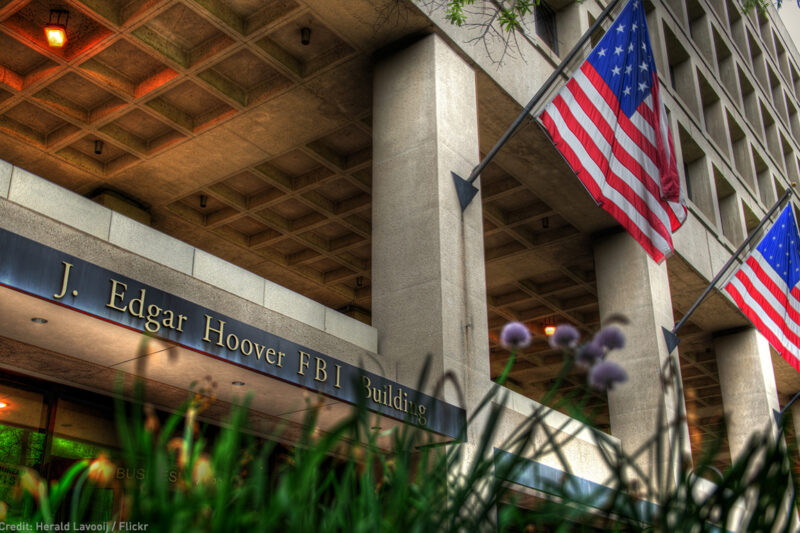
This morning, the Senate Judiciary Committee is holding a confirmation hearing for Christopher Wray, President Trump’s nominee to be director of the Federal Bureau of Investigation. The director is a critically important position, as the FBI has the power and responsibility to safeguard civil liberties and rights, though the agency has often claimed powers that violate the fundamental freedoms of citizens and noncitizens alike, at home and abroad.
The Senate Judiciary Committee must — in addition to reviewing Wray’s record as a top official in the Bush Justice Department — consider how that record and the circumstances around his nomination relate to any role the FBI director may have in the Russia investigation conducted by Special Counsel Robert Mueller. The position is vacant only because James Comey was fired over the FBI’s investigation into alleged Russian interference in the presidential election and possible collusion with the Trump campaign and associates. In considering the Wray nomination, the Senate must ensure that Mueller have full independence to investigate and that Wray not cave to any White House pressure to interfere in any investigation.
Wray’s record on civil liberties — from his apparent but unclear role in the Bush-era torture program to his advocacy for the passage and implementation of the USA PATRIOT Act to his support for “material support” prosecutions that have targeted, often unfairly, minorities and the vulnerable — is cause for alarm and requires rigorous scrutiny by the Senate.
From 2001 to 2005, Wray worked in the Department of Justice with many key architects of the unconstitutional, illegal, and immoral Bush torture program, including Alberto Gonzales, John Yoo, and Steven Bradbury. During his tenure, Wray is in numerous documents related to the torture program obtained by the ACLU through litigation. But because of redactions, his role and opinions remain largely secret.
Still, we know that John Yoo, an architect of the torture program, before the House Judiciary Committee in 2008 that Wray, as principal associate deputy attorney general, may have been one of the recipients of a secret legal opinion from 2003 that justified the Bush administration’s use of torture. Nothing in the public record indicates that Wray objected to torture and cruel treatment. But we do know that he was apparently involved in torture-related investigations that did not result in any prosecution.
Wray was also a strong advocate for the passage of the USA PATRIOT Act, which provided the government with vastly expanded authority to surveil people, including American citizens, even as it eliminated or watered down safeguards like judicial oversight, public accountability, and the ability to challenge government searches in court.
In 2003, Wray before the Senate Judiciary Committee that “the Patriot Act has helped preserve and protect liberty and freedom, not erode them,” and insisted that safeguards were in place to prevent abuse. Contrary to his view, the Justice Department's inspector general audits later confirmed widespread FBI abuse of Patriot Act powers. The courts later struck down parts of the Patriot Act as .
Wray also played a role in the arbitrary of almost 800 Arab or Muslim men who were held for prolonged periods, at times in maximum-security prisons, and cut off from access to their families and lawyers. Many of these men were held without a legitimate basis and some continued to be detained even after judges had ordered their release or deportation.
The FBI has a long history of abusing its authority; overstepping the law; profiling and discriminating against journalists, immigrants, and minorities; and violating the Constitution. That Wray, as director of the FBI, would also claim such broad powers should concern all of us.
As senators take up Christopher Wray’s nomination, the public deserves to know if he supports the torture, wrongful detention, and unlawful surveillance that were the hallmarks of the Bush years — aspects of which continued during the Obama years. In the Trump era especially, Americans will need an FBI director who knows how to say no to unconstitutional policies and practices and shows a commitment to abiding by the Constitution.
Will Christopher Wray be an independent FBI director, unafraid to say no to the Trump White House? By the end of today’s confirmation hearing, we should have Wray on the record answering this critical question.

